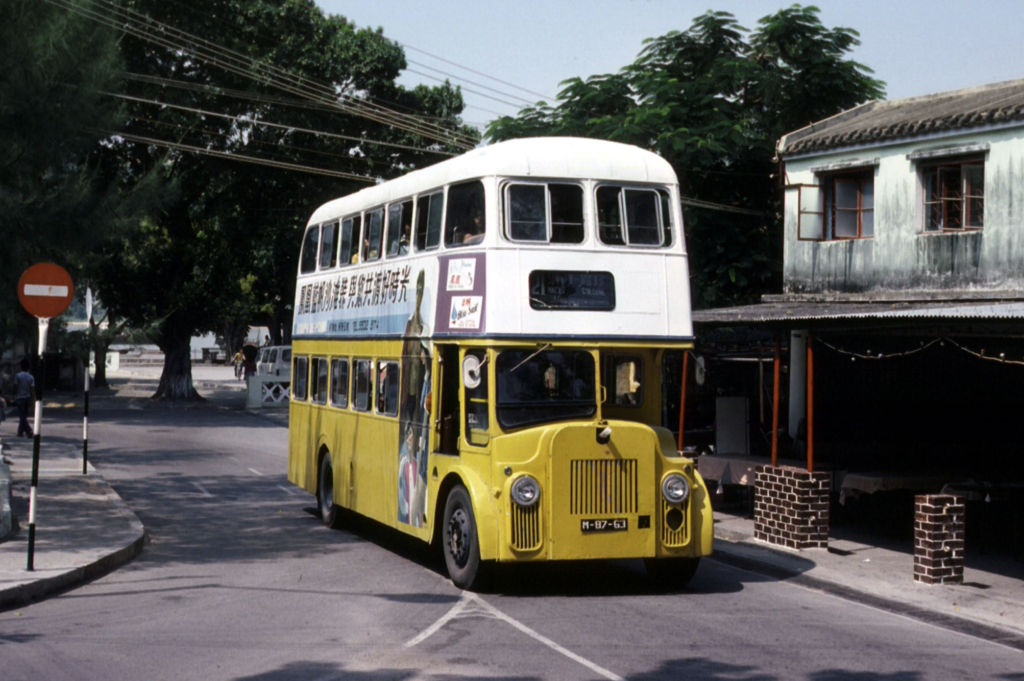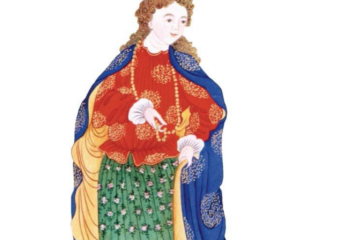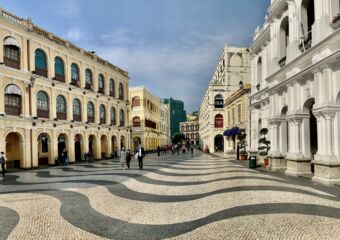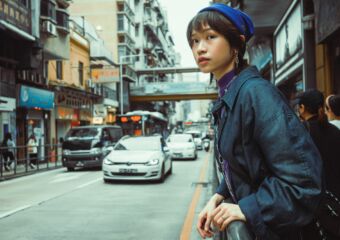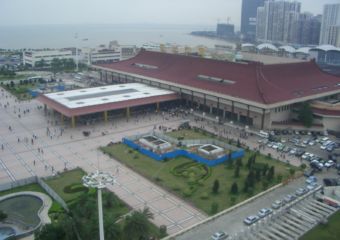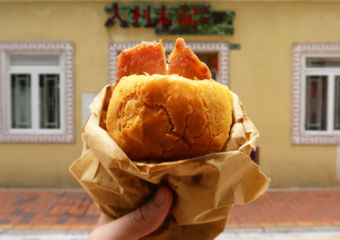Macau’s urban public bus fleet is huge and is currently run by the government, with services being provided by two different companies: Transmac and TCM. With one of the most populated neighborhoods in the world (Fai Chi Kei) and unbelievable peak-time traffic jams across the city’s 40 square kilometers, buses are one of the main (and most required) modes of transport. However, the city wasn’t always this populated and there weren’t always so many buses. In this article, we take a look at the history of Macau’s buses!
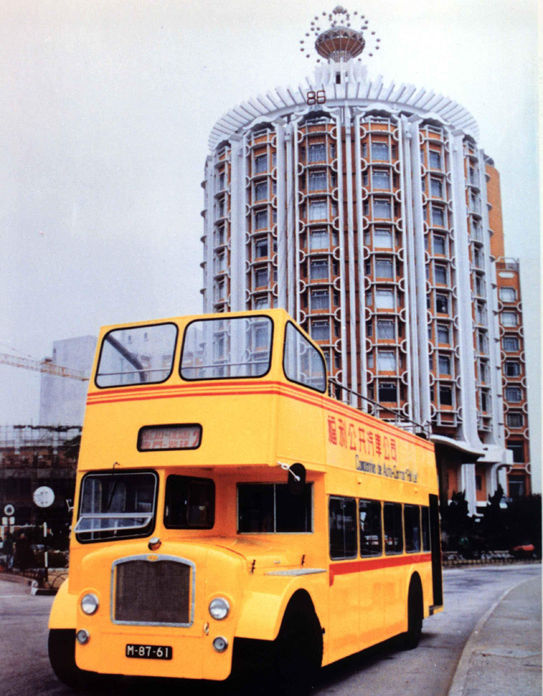
Helping the Neighbors
Everything started in 1919 when there were only three vehicles that posed as public buses. There were no local bus companies, so the first transportation of this kind began with businessmen and neighborhood associations who wanted to facilitate commuting for citizens. These first buses were called “Ji You Che” (free or freedom vehicles). They were basically big cheap trucks repurposed with wooden seats inside. Over time these trucks–though still unofficial–grew in number and became known as “Kai Fong Che” (neighbor vehicles).
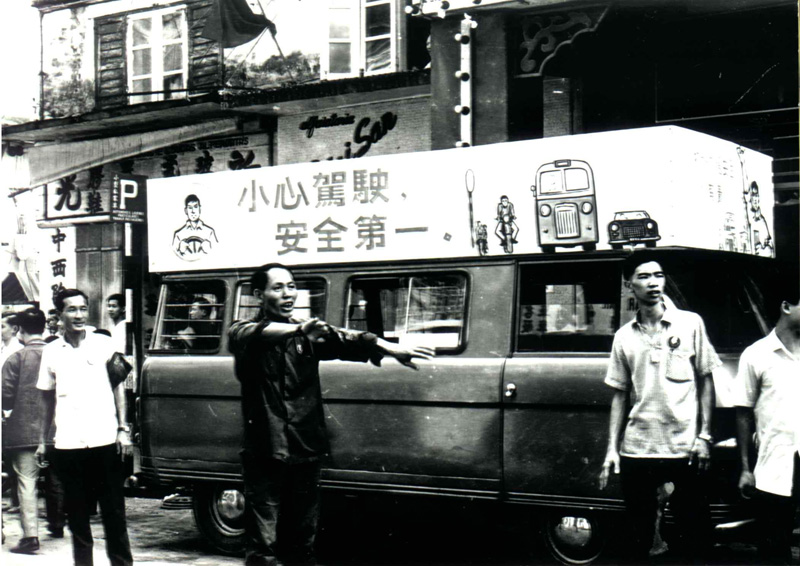
After a few years, the number of these grew to 30, and it was clear that there was a need for them. Ford was the main manufacturer and taking these buses was actually a form of entertainment activity for locals, as private cars were a rarity during this time. The popularity of the buses spiked and soon there were a number of different companies offering this kind of transport. However, most of them didn’t survive the competitive world they were operating in and disappeared soon after.
TCM: From Ferries to Buses
TCM started in the 50s as a ferry company providing transportation from the Macau peninsula to the islands (Coloane and Taipa) before the first bridge was constructed. With the completion of the bridge in 1974, a new era of local transportation began. TCM (then called Macau Island Passenger Transport Company) purchased several buses and started transporting passengers between Macau, Taipa, and Coloane. It was only in 1986 that the company changed its name to Sociedade de Transportes Colectivos de Macau. Ford was not the only bus supplier: TCM soon bought several Mercedes-Benz vehicles to cater to the population’s needs. In the 90s, the company started importing other brands, such as Japanese Toyota and Hino.
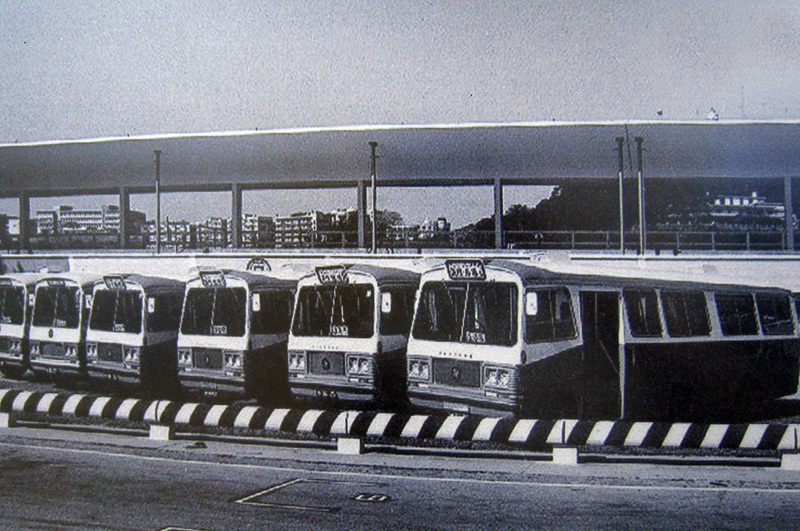
TCM buses
Three Fighters, Two Winners
In 1988, the local government signed a 10-year concession contract with three main companies providing buses. These concessions lasted until July 2011. Both Transmac (Transportes Urbanos de Macau) and TCM (Sociedade de Transportes Colectivos de Macao) are still currently running buses in Macau. There was a slight change in the transportation business scheme in 2011 when the Transport Bureau of the Macau Government (DSAT) introduced a government-led management system which gave them control over deciding routes, labor issues, and other logistical decisions. The bus companies simply acted as service providers. Thus, DSAT started an open-bidding process and both Transmac and TCM won the run.
Reolian (Sociedade de Transportes Públicos Reolian) was another company that stood out and provided bus services, but they eventually declared bankruptcy in 2013. There were several reasons for this, among them problems with what the government called “improper management”. At the time, DSAT took over the company’s operations to ensure public services would not be interrupted. However, the latter no longer exists in the Macau transportation system and only Transmac and TCM remain strong. Reolian’s remaining buses were taken over by New Era company, but TCM ended up managing them.

To The Future and Beyond
The establishment of environmentally-friendly public transportation services has been growing throughout the world, and this is the same in Macau. It might be taking our city a little bit longer than other European countries and even some Chinese cities (Shenzhen, Shanghai, Beijing, and Zhuhai have pretty incredible green transportation systems, with bikes, private cars, and the entire bus fleets as well), but we are getting there.
Although the local government has stated it’s difficult to implement environmentally-friendly buses throughout the whole public transportation system, they have admitted that it is an important issue. Transmac revealed that they’re in the process of renewing its 400-bus fleet and two of them are going to be electric.
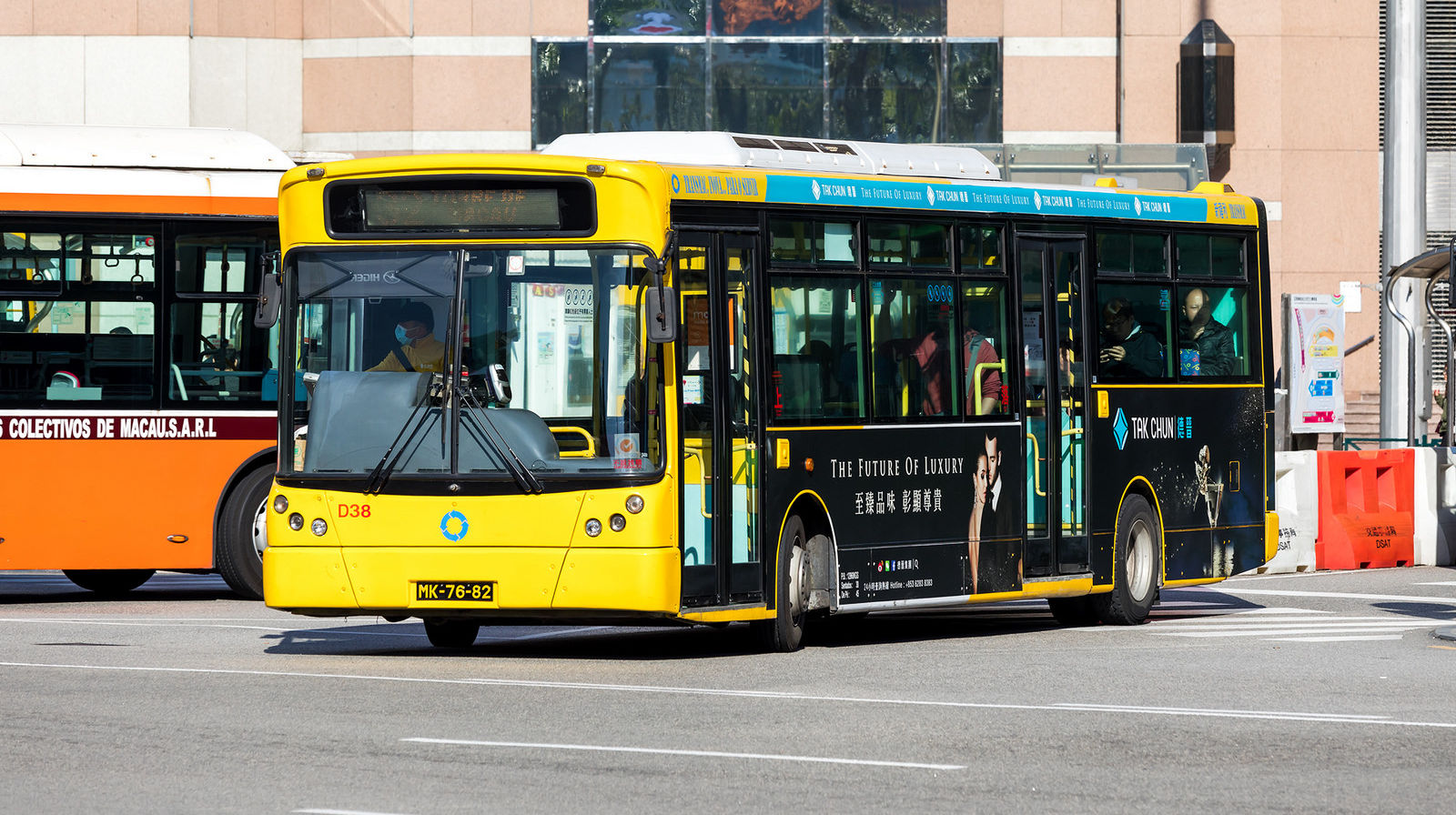
Lack of land in Macau also makes it difficult to create space for electrical chargers for vehicles, which makes it hard to democratize the use of electric cars or buses. Transmac explained their vehicles will have a generator to solve this charging issue. TCM is also focusing on environmental issues. Henceforth, the company–which already has 14% of its fleet running on natural gas–intends to increase this number in the future.
Sociedade de Transportes Colectivos de Macau, S.A.. (TCM) Em Macau, Istmo de Ferreira do Amaral Nºs 101-105-A, Industrial Tai Peng (1.Fase) 9º Andar B, +853 2885 0060, www.tcm.com.mo
Transportes Urbanos de Macau (Transmac) Estrada Marginal Ilha Verde 2 R/C, Macau, +853 2827 1122, +853 2827 1133, www.transmac.com.mo/en

